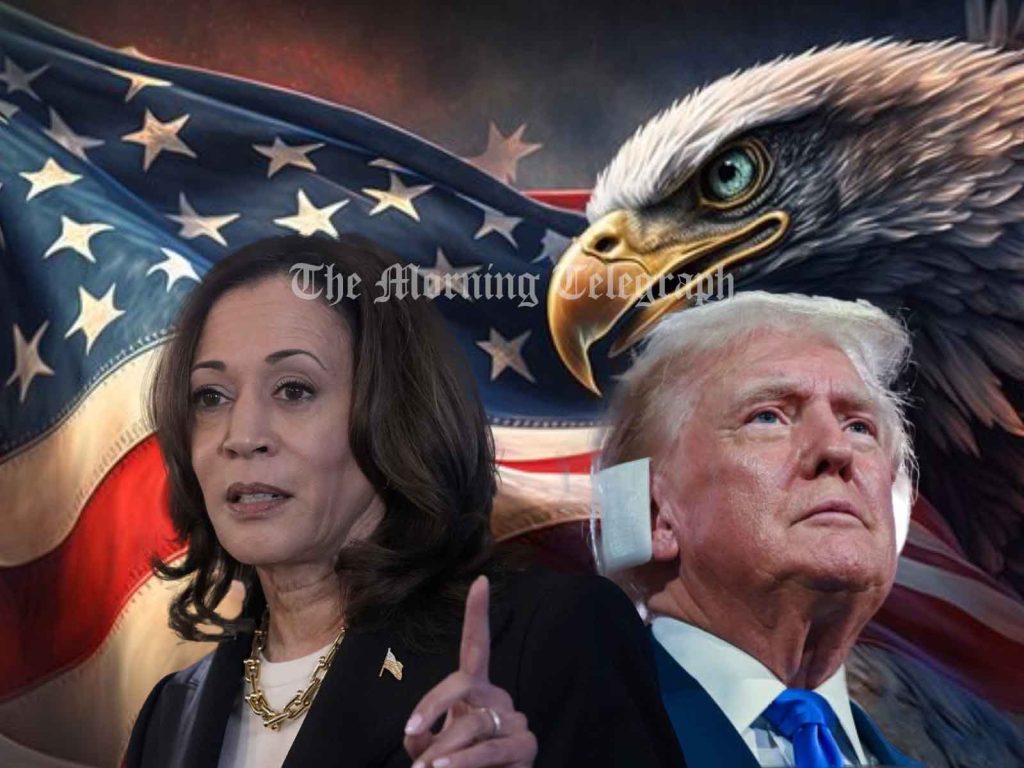
Kamala Harris, having spent a significant part of her career as a prosecutor, is now preparing to leverage this experience in her campaign against Donald Trump. In sessions quietly held at the Naval Observatory even before Joe Biden’s recent debate performance, Harris and her inner circle decided to focus almost exclusively on Trump’s legal issues rather than on his chosen running mate.
Harris initially anticipated supporting Biden’s campaign, but as Biden stepped aside, it became clear she would need to make the case for herself. With growing endorsements from potential opponents, Harris’s candidacy will heavily emphasize her background as a district attorney, attorney general, and cross-examiner in Senate hearings. The strategy is simple: a prosecutor versus a felon.
This approach is a return to her 2020 “prosecutor for president” campaign, which featured her slogan “Kamala Harris, for the people,” derived from her days as a young assistant district attorney. At that time, her team was stretching the rhetoric. However, this year, the GOP nominee has been found guilty in a New York hush money trial, liable for battery in a civil case, and faces two other criminal cases related to subverting the 2020 election.
Advisors believe this strategy will not only highlight her life story but also portray her as fighting for Americans while Trump is seen as serving himself. It also aims to showcase her attributes such as strength, intelligence, and toughness—qualities of a prosecutor that are also essential for a commander in chief.
Her supporters are eager to see her execute this strategy. Massachusetts Sen. Elizabeth Warren, a former primary opponent who quickly endorsed Harris, highlighted Harris’s experience holding convicted felons accountable. Warren noted that she first met Harris when she was setting up the Consumer Financial Protection Bureau, and Harris was taking on big banks over the mortgage crisis.
Mini Timmaraju, president of Reproductive Freedom for All, emphasized Harris’s history of taking on tough cases and tough characters like Trump. Harris’s reputation has grown from her success in putting bad guys away, and now she has the chance to take on Trump, described as the “ultimate bad guy.”
During a recent stop in Fayetteville, North Carolina, Harris tested some of these lines. She compared Biden’s record to Trump’s on boosting manufacturing jobs, helping seniors, protecting Obamacare, and lowering prices on goods. Harris has also blamed Trump for the overturning of Roe v. Wade and the state-level abortion restrictions that followed.
Harris’s approach includes deconstructing issues and presenting empirical evidence to the American people. During her 2020 campaign, under attack from progressives who said she had been too tough on crime, Harris abandoned this approach at the urging of her younger sister Maya, a former ACLU official and Hillary Clinton advisor.
Over the past few weeks, Harris has prepared for the possibility of running on her own. While Biden deliberated his future, Harris knew she was not in control of her fate. Friends and advisors reached out, but she did not engage in conversations about the presidential race to avoid any perception of scheming.
On Friday, Harris made a surprise stop at a new ice cream store in Washington, DC, owned by supermodel Tyra Banks, with her grandnieces in tow. On Saturday, Tony West, married to her sister Maya and a longtime Harris political advisor, was with her on a flight to a fundraiser in Provincetown, Massachusetts.
Although Biden’s decision to seek reelection was partly due to reservations about Harris’s readiness, people close to her believe she has been preparing for this moment. Eleni Kounalakis, the lieutenant governor of California and a longtime friend, said Harris has been getting ready very quietly and deliberately out of respect for the country.
Harris spent most of Sunday making calls to key supporters in Congress. While some aim to secure her nomination quickly, she reiterated her opposition to rushing a virtual roll call vote and emphasized her desire to earn the nomination.
One of her biggest tasks ahead will be quickly vetting and choosing a running mate. In recent campaign stops, she has appeared with potential candidates like Pennsylvania Gov. Josh Shapiro, North Carolina Gov. Roy Cooper, and Transportation Secretary Pete Buttigieg. Other possibilities include Kentucky Gov. Andy Beshear and Arizona Sen. Mark Kelly.
Harris’s candidacy is historic, representing a half-Jamaican, half-Indian woman who identified strongly with the American Black experience and chose Howard University for college. She is also married to a Jewish man. Her supporters anticipate her candidacy will drive significant enthusiasm from the Democratic base, particularly on issues like abortion.
However, Harris is likely to face vicious attacks and subconscious racism and sexism. Her candidacy aims to represent core party voters in a way they did not feel represented by Biden. With women already highly engaged on abortion, several Democrats predict a boost from elevating Harris.
Connecticut Rep. Jahana Hayes expressed concern about Harris and Black women bearing the blame for a loss. Laphonza Butler, a longtime friend and senator from California, believes Harris’s experience as vice president and Trump’s legal problems make this a different situation from her last campaign.
Harris’s previous campaign launch in January 2019 was huge but quickly fizzled out. Imagining a standard two-year primary campaign, friends and former aides saw a potential slog. However, several believe that a high-pressure, limited-time campaign could work to her advantage.
Massachusetts Sen. Elizabeth Warren echoed this sentiment, stating that Harris gets calmer and more focused under pressure. A House Democrat in a Trump-won district urged Harris to focus on doing the right thing, even if it upsets progressives.
Harris’s team believes she is ready to prosecute the case against Trump and present herself as a strong, intelligent, and tough leader ready to serve as commander in chief.




